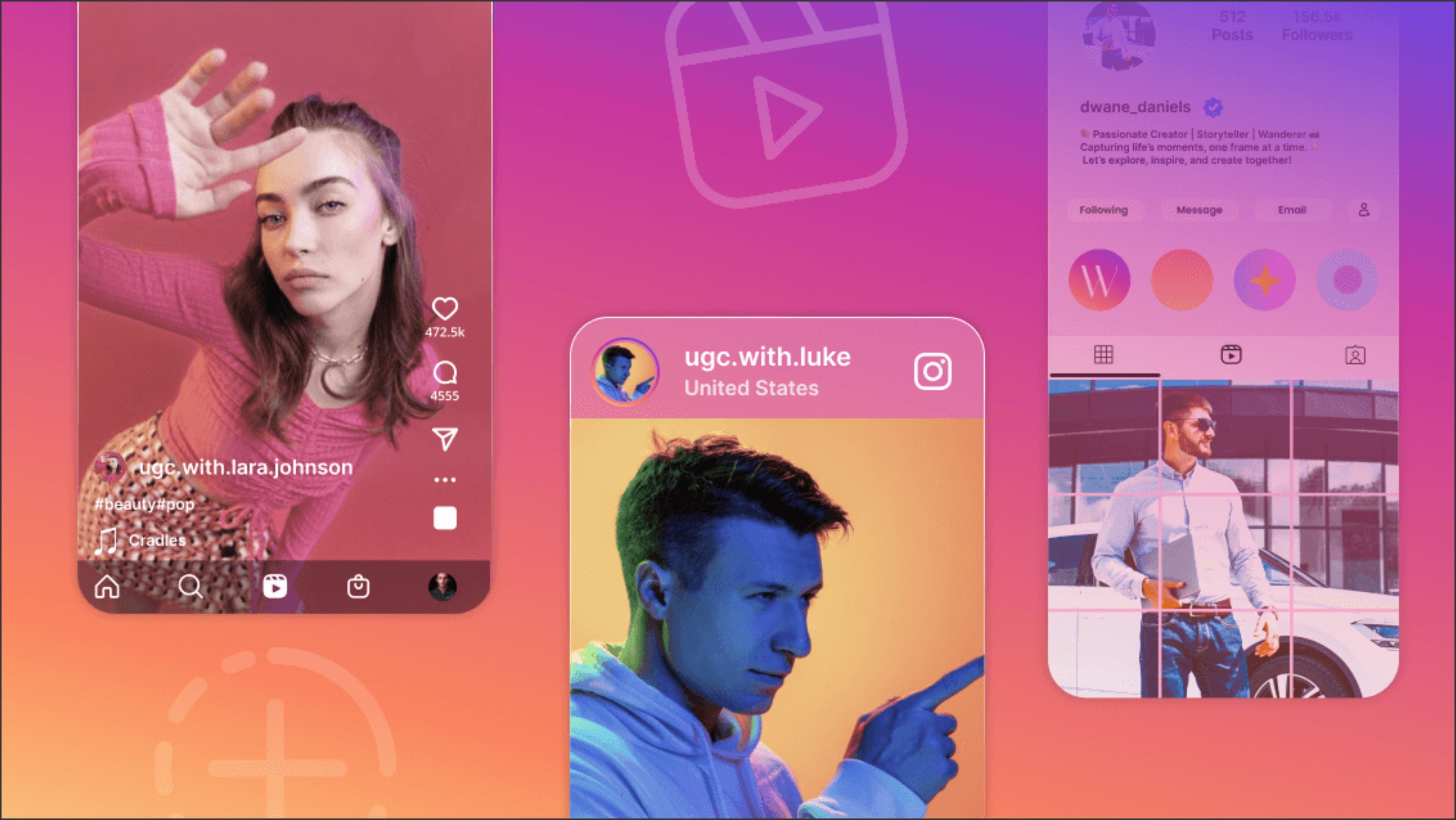
Navigation technology is transforming the way Indians travel, with Google Maps and Ola Maps leading the charge. These platforms are not only enhancing the user experience by providing accurate and real-time information but are also contributing to the efficiency of the transportation sector. This report delves into the impact of these mapping services on navigation and transportation in India
Conclusion:
Google Maps and Ola Maps are at the forefront of a navigation revolution in India, significantly improving the way people travel and interact with their surroundings. Their contributions to the transportation sector are invaluable, driving efficiency, reducing travel times, and enhancing the overall user experience. As these platforms continue to innovate, they will undoubtedly play a crucial role in shaping the future of navigation and transportation in India.

New Delhi: YouTube has unveiled a significant update for 2024, poised to transform how content creators manage and grow their channels. This update brings a suite of new features and algorithm changes that will impact video visibility, monetization, and audience engagement. Here's what you need to know to navigate the changes and maximize your channel's success.
YouTube's 2024 update includes a major overhaul of its recommendation algorithm. The new algorithm prioritizes content that generates sustained viewer engagement and interaction over time. Channels that focus on creating high-quality, engaging content that encourages likes, comments, and shares are more likely to benefit from increased visibility.
Viewer retention has become a critical metric in the updated algorithm. Videos that keep viewers engaged for longer periods will rank higher in search results and recommendations. Content creators are encouraged to use techniques such as compelling storytelling, frequent visual changes, and engaging hooks to maintain viewer interest.
To support creators, YouTube has introduced several new monetization features. These include enhanced membership tiers, allowing creators to offer exclusive content and perks to paying subscribers, and an expanded Super Chat and Super Stickers feature for live streams, enabling fans to support their favorite creators more easily.
The update also brings stricter content guidelines aimed at ensuring a safer and more respectful community. Content that violates YouTube's policies on hate speech, misinformation, and harmful practices will face quicker and more decisive action. Creators must adhere to these guidelines to avoid strikes and potential demonetization.
YouTube Studio has been upgraded with more detailed analytics and insights. Creators can now access granular data on viewer demographics, engagement patterns, and revenue streams. These insights are designed to help creators fine-tune their content strategies, optimize upload schedules, and better understand their audience.
YouTube is doubling down on its support for short-form content, recognizing the growing popularity of TikTok-style videos. The platform's Shorts feature has been expanded with new editing tools, discoverability options, and monetization opportunities. Channels that incorporate Shorts into their content strategy are likely to see increased engagement and reach.
To foster a stronger connection between creators and their audiences, YouTube has introduced new community engagement tools. These include interactive polls, quizzes, and community posts that can be used to engage with subscribers outside of video content. These tools help maintain a vibrant and interactive channel community.
YouTube is placing a greater emphasis on educational and informative content, promoting channels that offer valuable knowledge and skills. Creators in niches such as tutorials, how-tos, and educational series are encouraged to capitalize on this trend by producing content that educates and empowers viewers.
YouTube's 2024 update brings a wave of changes designed to enhance user experience, support creators, and maintain platform integrity. By understanding and adapting to these new features and guidelines, content creators can effectively grow their channels, engage their audiences, and maximize their monetization potential. Staying informed and agile in response to these updates is key to thriving on YouTube in the dynamic digital landscape of 2024.

New Delhi: Google's latest core update, rolled out in March 2024, is set to revolutionize local SEO strategies, particularly with its stringent measures against "scaled content abuse." This update holds significant implications for businesses aiming to target specific geographic locations, fundamentally altering the use of city silos and other localized SEO tactics.
1. Understanding the Core Update:
The March 2024 core update by Google focuses on enhancing the quality and relevance of search results by cracking down on practices that exploit scaled content. This includes excessive and repetitive use of similar content across multiple city-specific pages, a tactic commonly used in local SEO to boost visibility in various geographic locations.
City silos, a technique where businesses create multiple pages targeting different cities with similar content, are directly affected by the new update. Google’s emphasis on combating "scaled content abuse" means that pages with thin, duplicate, or low-value content designed solely to manipulate search rankings are likely to see significant drops in visibility.
The update underscores the need for unique, high-quality content tailored to the specific needs and interests of local audiences. Businesses must move away from templated content and invest in creating valuable, relevant, and engaging content for each geographic location they target.
To align with Google's new guidelines, businesses should adopt the following best practices for local SEO:
Unique Content Creation: Develop distinct, high-quality content for each city or region, focusing on local news, events, and community interests.
Localized Keyword Research: Conduct thorough keyword research to identify unique search terms and phrases relevant to each location.
Enhanced User Experience: Ensure each page provides a seamless and valuable user experience, with fast load times, mobile optimization, and easy navigation.
Local Business Listings: Optimize and maintain accurate and comprehensive local business listings on Google My Business and other directories.
Customer Reviews and Testimonials: Encourage and showcase genuine customer reviews and testimonials to build trust and credibility within each target community.
In addition to content, businesses should enhance local signals through strategies such as obtaining local backlinks, engaging with local influencers, and participating in community events. These actions help build a strong local presence and authority, which are crucial under the new update.
Continuous monitoring of website performance and local search rankings is essential to understand the impact of the core update. Businesses should be prepared to adapt their strategies based on performance data and evolving search engine algorithms.
Google’s March 2024 core update marks a pivotal shift towards more authentic and user-centric local SEO practices. Businesses that embrace these changes by prioritizing quality, relevance, and local engagement are poised to benefit from enhanced visibility and customer loyalty.
The introduction of Google's March 2024 core update signifies a significant evolution in local SEO, challenging businesses to rethink their strategies and prioritize genuine, high-quality content over scaled content abuse. As the digital landscape continues to evolve, businesses that adapt to these changes and invest in creating meaningful, localized content will thrive, building stronger connections with their target audiences and achieving sustained success in local search rankings.

Instagram announces a pivotal shift in its platform strategy for 2024, declaring Instagram Reels as the definitive focus for content creators and businesses. This update marks a significant transition as Instagram relegates IGTV to the background, emphasizing the dominance of short-form video content over longer formats.
In 2024, Instagram is doubling down on Instagram Reels, positioning it as the cornerstone of content creation and discovery on the platform. Reels, which allows users to create short, engaging videos set to music or audio tracks, is now the primary vehicle for capturing audience attention and maximizing reach.
With the pivot towards Reels, Instagram has phased out IGTV, signaling the end of vertical and long-form video content on the platform. This strategic decision reflects Instagram's commitment to prioritizing formats that align with user preferences for quick, consumable content that fosters interaction and virality.
Short-form video content has emerged as the preferred format for social media engagement, driven by its ability to capture viewers' attention quickly and encourage sharing. Instagram Reels' integration into users' feeds and Explore tab amplifies its reach, making it indispensable for content creators aiming to boost visibility.
Content creators and brands are urged to capitalize on Instagram Reels' creative potential to craft compelling narratives, showcase products, and connect authentically with audiences. Innovations such as AR effects, interactive features, and music overlays empower users to produce dynamic, engaging content that resonates.
Influencers and brands must adapt their strategies to leverage Instagram Reels effectively. By embracing trends, utilizing editing tools, and leveraging algorithmic insights, creators can enhance engagement, attract new followers, and drive conversions through Reels' immersive storytelling capabilities.
Instagram's algorithm prioritizes Reels content, enhancing discoverability and exposure for creators who harness the format's viral potential. Strategic use of hashtags, trending audio tracks, and engaging visuals can catapult Reels onto users' Explore pages, exponentially increasing content reach and engagement.
For businesses, Instagram Reels serves as a powerful tool to showcase products and drive sales. Seamless integration with Instagram Shopping allows brands to tag products directly in Reels, facilitating frictionless shopping experiences and converting engagement into actionable purchases.
As Instagram evolves, content creators and marketers are advised to pivot towards short-form video strategies centered on Reels. Embracing agile content creation, monitoring performance metrics, and adapting to algorithm updates are critical for maintaining relevance and maximizing ROI on the platform.
Instagram continues to gather user feedback to refine Reels' functionalities and user experience. Ongoing updates and feature enhancements ensure that Reels remains a dynamic platform for creativity, community engagement, and digital storytelling in the evolving social media landscape.
Looking ahead, Instagram's commitment to Reels underscores its role in shaping digital trends and driving innovation in social media. By capitalizing on Reels' popularity and fostering creative expression, Instagram empowers users and brands to forge meaningful connections and thrive in the competitive digital marketplace.
Instagram's strategic pivot towards Instagram Reels in 2024 heralds a new era of content creation and consumption on the platform. As Reels takes center stage, content creators and businesses must embrace its dynamic capabilities, adapt their strategies accordingly, and harness its potential to engage audiences, drive growth, and elevate brand presence in the ever-evolving realm of social media.

Facebook is gearing up to redefine social interaction and digital engagement in 2024 with ambitious plans to enhance its virtual reality (VR) and augmented reality (AR) offerings. As these immersive technologies gain momentum, businesses are urged to explore innovative ways to leverage VR and AR on Facebook platforms to connect with followers and customers in unprecedented ways.
1. Expansion of VR Experiences:
Facebook's roadmap for 2024 includes expanding its VR ecosystem with new features designed to enhance user immersion and interaction. From virtual social gatherings to immersive gaming experiences, VR on Facebook is set to offer users a seamless blend of entertainment and connectivity.
AR integration on Facebook platforms will enable users to overlay digital information and interactive elements onto their physical environment. This transformative technology opens doors for businesses to create engaging AR experiences, such as virtual try-ons, interactive advertisements, and location-based promotions.
VR and AR on Facebook foster deeper social connections by allowing users to interact in virtual environments as avatars or share AR-enhanced moments in real-time. Businesses can leverage these capabilities to host virtual events, product launches, and customer engagement sessions with global reach and impact.
In 2024, businesses are encouraged to explore the potential of VR and AR on Facebook as powerful tools for brand storytelling and customer engagement. VR simulations can showcase products in virtual showrooms, while AR filters and effects can drive interactive marketing campaigns that resonate with digital-savvy audiences.
VR and AR technologies provide businesses with unprecedented opportunities to deliver personalized experiences tailored to individual preferences and behaviors. AI-driven analytics embedded within VR/AR platforms on Facebook enable businesses to glean valuable consumer insights and optimize marketing strategies.
E-commerce integration within VR environments allows users to browse and purchase products seamlessly, transforming virtual experiences into tangible transactions. Meanwhile, AR-driven digital advertising enhances engagement by placing branded content in the context of users' real-world environments.
Facebook encourages collaboration through strategic partnerships and developer initiatives to expand the VR/AR ecosystem. By fostering innovation and creativity, Facebook aims to empower developers and businesses to create compelling VR/AR applications that enhance user experiences and drive business growth.
As VR and AR technologies evolve, Facebook remains committed to protecting user privacy and ensuring ethical use of immersive technologies. Transparent policies, robust security measures, and adherence to data protection regulations are prioritized to build trust and confidence among users and businesses alike.
Looking ahead, Facebook's advancements in VR and AR position the platform at the forefront of digital innovation. As businesses navigate the evolving digital landscape, embracing VR and AR on Facebook presents unparalleled opportunities to engage audiences, differentiate brands, and pioneer new paradigms of digital interaction.
As Facebook charts its course for 2024 with expanded VR and AR capabilities, the convergence of social networking and immersive technologies promises to redefine how businesses connect with customers and stakeholders. By embracing VR/AR innovations on Facebook, businesses can unlock new dimensions of creativity, engagement, and consumer interaction, shaping the future of digital marketing and brand experiences in the dynamic years ahead.

As we step into 2024, the landscape of content marketing is poised for a transformative journey back to foundational best practices, augmented by the integration of artificial intelligence (AI) to enhance productivity and efficiency. This strategic approach not only prioritizes content quality but also embraces technological advancements to streamline workflows and maximize impact across digital platforms.
In 2024, content marketing strategies are refocusing on delivering high-quality, relevant content that resonates deeply with target audiences. Brands are prioritizing storytelling, authenticity, and value-driven narratives to engage consumers and build long-term relationships based on trust and credibility.
AI technologies are revolutionizing content creation processes by automating routine tasks, generating data-driven insights, and optimizing content strategies. Natural language processing (NLP) algorithms enable marketers to create compelling, SEO-optimized content at scale, enhancing efficiency without compromising creativity.
The future of content marketing hinges on personalized experiences tailored to individual preferences and behaviors. AI-powered analytics and machine learning algorithms analyze consumer data in real-time, enabling marketers to deliver personalized recommendations, customized messaging, and targeted campaigns that resonate with diverse audience segments.
With the proliferation of digital platforms, content marketers are optimizing their strategies for multi-channel distribution. AI-driven tools facilitate seamless content distribution across websites, social media, email, and emerging digital channels, ensuring consistent brand messaging and maximizing reach.
Data analytics remains pivotal in shaping content strategies in 2024. AI-powered analytics tools provide actionable insights into content performance, audience engagement metrics, and competitive benchmarks. Marketers leverage data to refine content tactics, allocate resources effectively, and optimize ROI.
Agility is key in adapting to rapidly evolving consumer preferences and market dynamics. Agile content strategies empower marketers to experiment, iterate quickly, and respond to real-time feedback. AI facilitates adaptive planning and content scheduling, enabling brands to stay ahead in a competitive digital landscape.
As AI assumes a greater role in content marketing, ethical considerations around data privacy, algorithmic bias, and transparent AI use are paramount. Brands prioritize ethical AI practices, uphold regulatory compliance, and communicate transparently with consumers to build trust and maintain credibility.
Collaboration tools enhanced by AI foster seamless teamwork and workflow efficiency among content creators, editors, and marketers. AI-powered project management platforms streamline content production, revision cycles, and approvals, reducing turnaround times and optimizing resource allocation.
Innovative content formats such as interactive videos, immersive storytelling, and augmented reality (AR) experiences are gaining traction in 2024. AI-driven content personalization enhances engagement and conversion rates, while dynamic content delivery adapts to user preferences in real-time.
Looking ahead, the future of content marketing in 2024 is defined by a blend of creativity, technology, and strategic alignment with consumer needs. Industry leaders invest in AI talent, cultivate a culture of innovation, and embrace agile methodologies to navigate digital disruption and drive sustainable growth.
As content marketing evolves in 2024, the convergence of traditional best practices with AI-driven innovations promises to redefine industry standards and elevate brand storytelling to unprecedented levels of impact and engagement. By prioritizing content quality, personalization, and ethical AI use, marketers are poised to harness the full potential of digital transformation and deliver compelling, resonant content experiences that captivate audiences and drive measurable business outcomes in the dynamic digital landscape ahead.